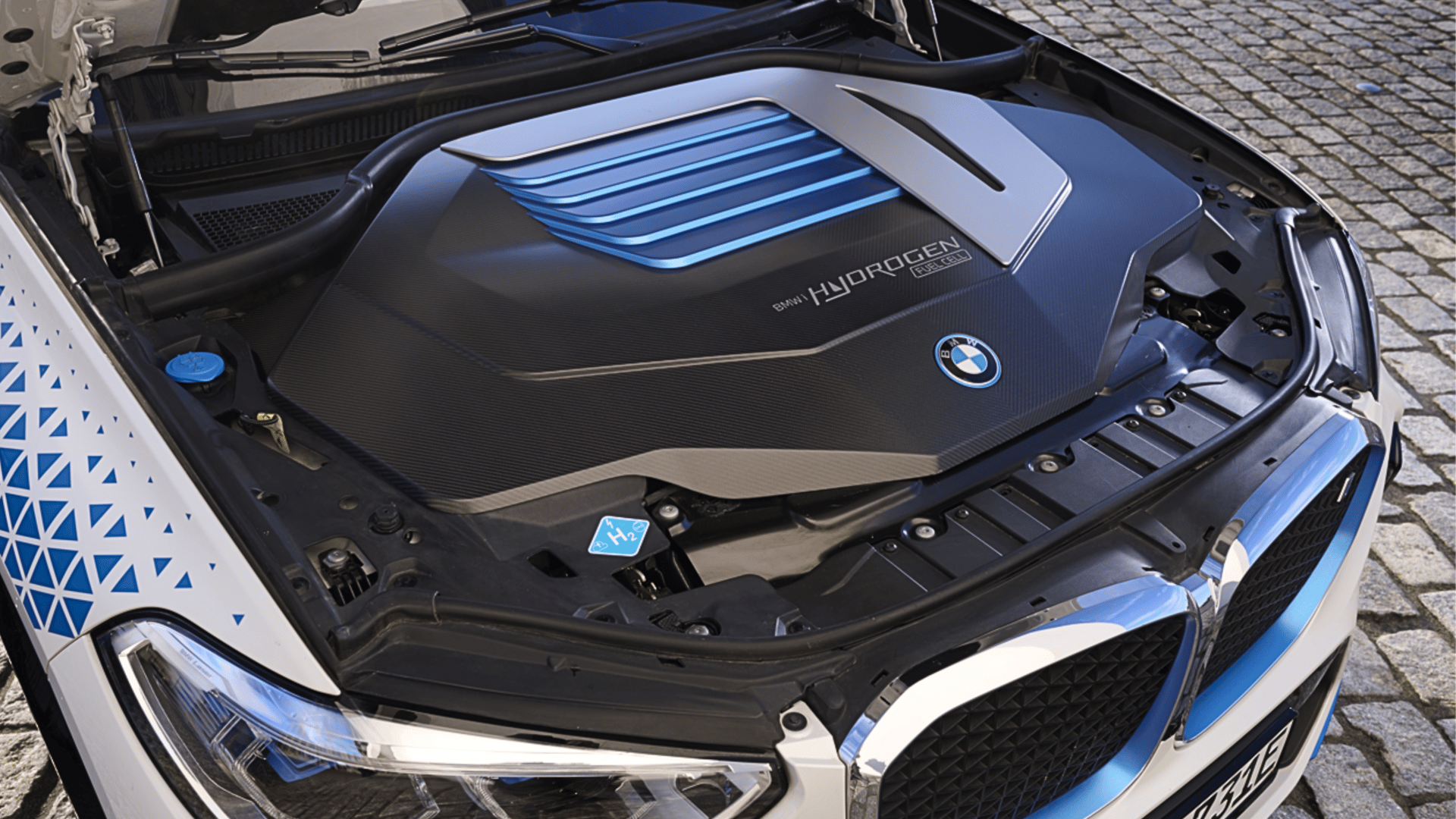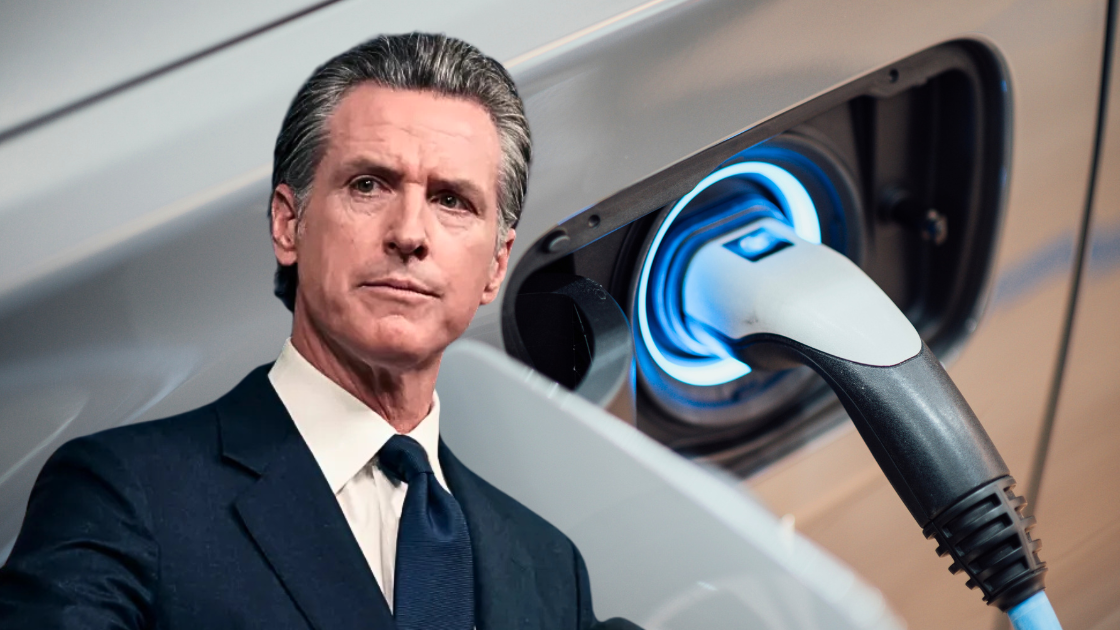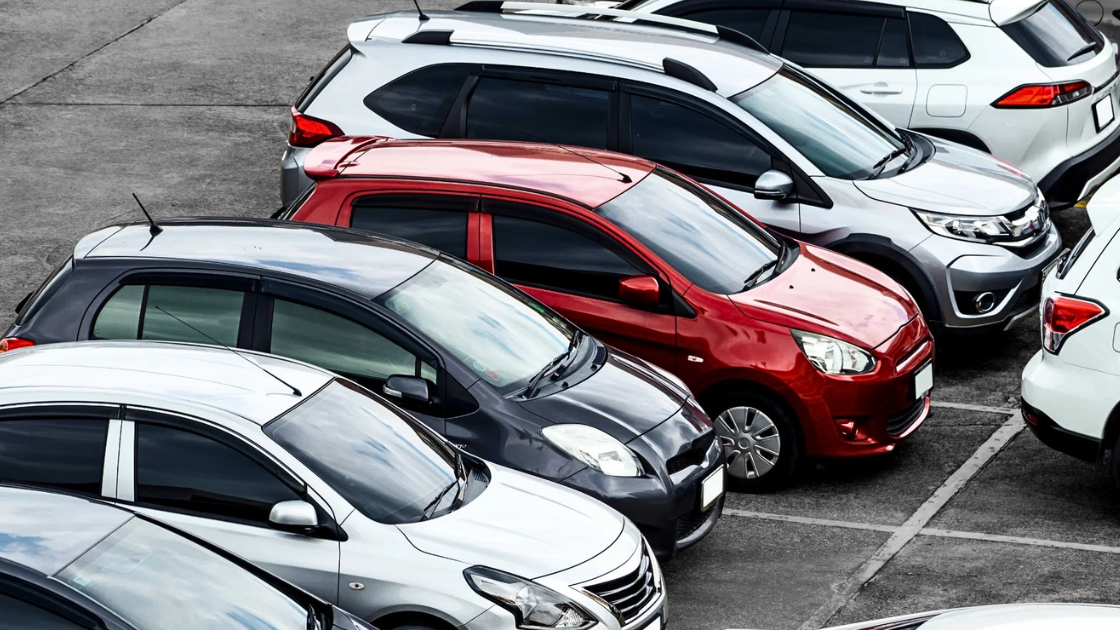BMW sees a unique value proposition with hydrogen fuel cell vehicles—as it prepares to launch its first fuel cell electric vehicle (FCEV).
The details: Once a bit hesitant about the tech, the German automaker is now leaning into FCEVs as another form of an electric vehicle—as BMW Group’s General Project Manager Hydrogen Technology and Vehicle Projects, Jürgen Guldner, explained during a recent summit for FCEVs.
A fuel cell vehicle has all the benefits of an EV—acceleration, silent driving, zero emission.
An FCEV’s refueling time is 3 to 4 minutes to 100% full—a fraction of the time it takes to charge an EV on a DC Fast Charger.
BMW can also reuse a lot of its BEV components like the electric motors for its FCEVs.
What they’re saying: “Having a second technology, not putting all eggs in one basket, provides resilience. BMW having two technologies is better than one. We got a lot of feedback from people saying BEVs don’t work for them,” said Jürgen Guldner, General Project Manager Hydrogen Technology and Vehicle Projects for BMW Group (via Fortune).
Why it matters: Hydrogen fuel cell vehicles provide a lot of the benefits of electric vehicles while addressing concerns with the tech such as charging infrastructure (or lack of), towing challenges, and weather conditions that can impact EV performance.
Between the lines: BMW, which has been doing pilot runs of its hydrogen fuel cell technology with the X5 since 2023, is expected to roll out its first production FCEV in 2028—one of a few automakers waging some of their bets on hydrogen fuel cell cars.
However, there are some inherent challenges with hydrogen fuel cell cars—one being the price for a hydrogen station, which is between $1.5 and $2 million, with some estimates putting the cost at $4 million.
“The biggest challenge with hydrogen is the fact that it works very well at large scale, but not so good at small scale. One single hydrogen fueling station requires hundreds of passenger cars to make the economics work, but only a very small number of trucks,” said Chris Jackson, CEO and Founder of Protium Green Solutions (via Fortune).
Bottom line: BMW’s move into hydrogen fuel cell vehicles signals a strategic diversification in its clean mobility strategy—mitigating risk by not relying solely on battery electric vehicles. However, whether this bet yields any major dividends will depend on several factors beyond BMW’s control.
A quick word from our partner
Here’s a question –
How much would your business change if you had one more employee who works 24/7, answering questions, driving sales conversations, and setting up test drives–even when your dealership is closed?
Most AI solutions only act as a copilot–and a human still has to approve and use the content they create.
But now with Podium’s AI BDC – AI can take over tasks to respond instantly to every incoming lead without direct supervision.
The best part?
With a seamless handoff to staff on the sales floor, customers will never know they were interacting with an AI to begin with.
Click here to try Podium's AI BDC today.

OUTSMART THE CAR MARKET IN 5 MINUTES A WEEK
No-BS insights, built for car dealers. Free, fast, and trusted by 55,000+ car dealers.












